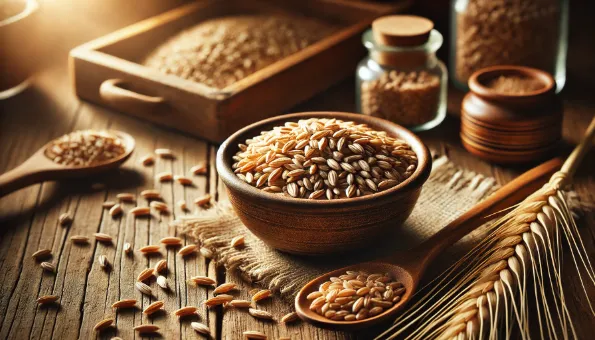Spelt: Ancient Grain with Nutty Flavor & High Nutrition
An ancient wheat variety rich in fiber, protein, and minerals—great for breads, pasta, and hearty salads.

What Is Spelt?
Spelt (*Triticum spelta*) is an **ancient grain** related to modern wheat but with a slightly **nutty, sweet flavor**. It has been cultivated for thousands of years and is enjoying a revival as a whole-grain option.
Nutrition (per 100 g cooked grain)
- **Calories:** ~127 kcal
- **Protein:** ~5 g
- **Carbs:** ~27 g
- **Fiber:** ~4 g
- **Minerals:** magnesium, iron, zinc, manganese
- Contains gluten but often easier to digest for some people
Benefits
- **Whole grain goodness:** rich in fiber for digestive health
- **Plant protein:** supports muscle maintenance
- **Micronutrients:** iron & magnesium for energy metabolism
- **Low GI option:** may help stabilize blood sugar better than refined wheat
Considerations
- **Contains gluten**—not suitable for celiac disease
- Can cause bloating for those sensitive to FODMAPs or wheat
- Needs longer cooking than regular wheat flour (if using whole berries)
How to Use
- **Flour:** bake bread, muffins, pancakes, pasta
- **Whole berries:** cook and use in grain salads or as rice replacement
- **Breakfast porridge:** simmer with milk or plant milk
- Pairs well with nuts, dried fruit, root vegetables, mushrooms
Summary
Spelt is a nutrient-rich ancient wheat variety with a nutty taste—ideal for breads, pastas, and whole-grain meals.
- 1. Spelt
spelt – drevna pšenica (*Triticum spelta*) sa orašastim okusom, koristi se za hljebove, tjesteninu i salate; sadrži gluten ali lakše probavljiv za neke osobe

